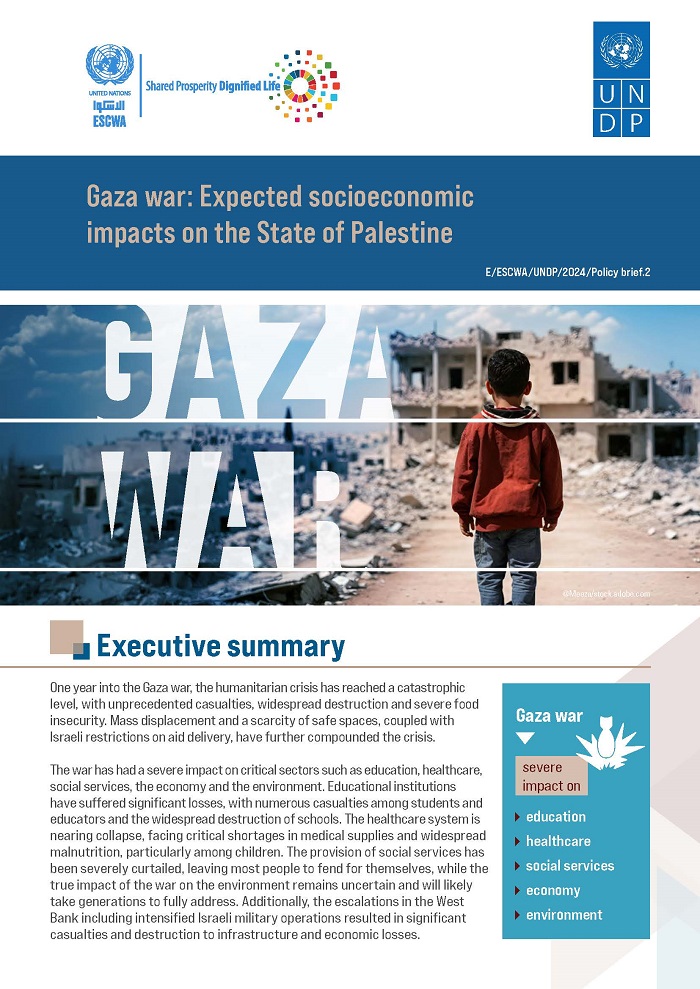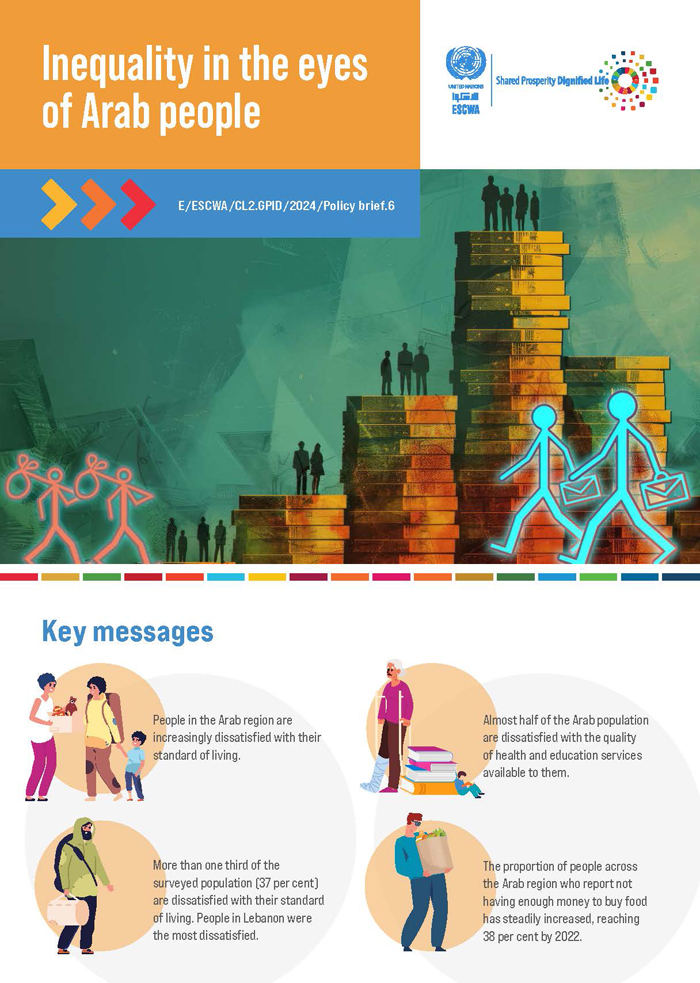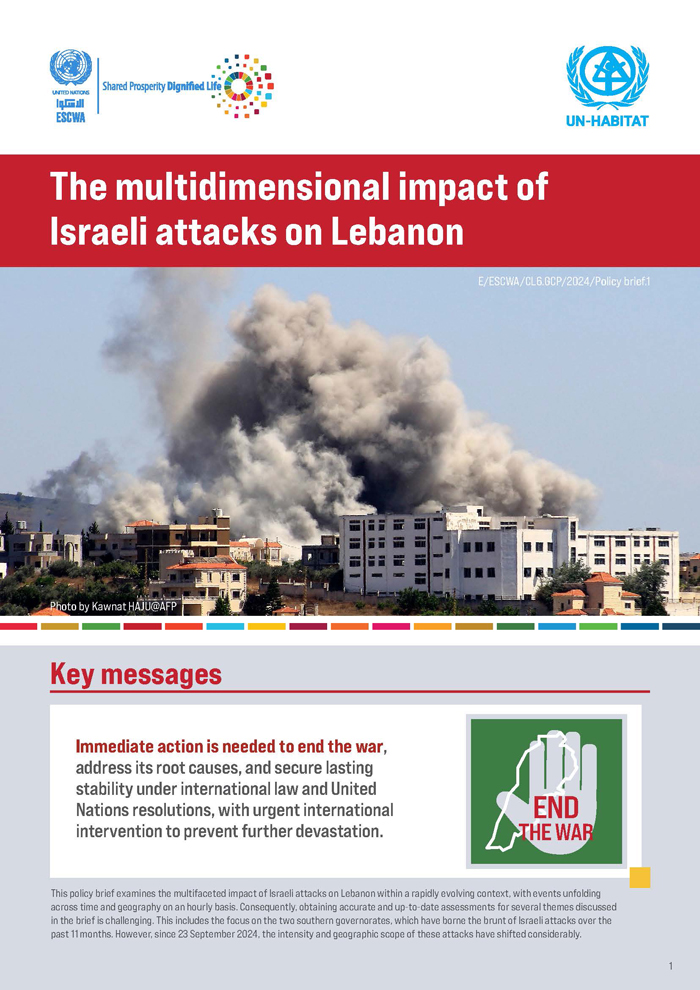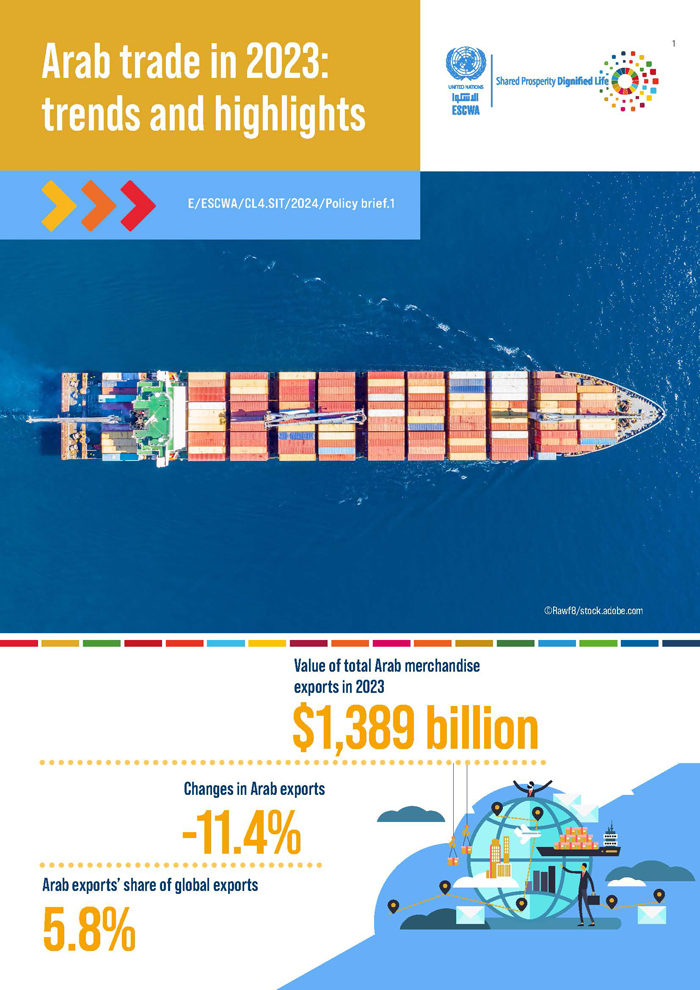Food security
Over 50 million people in the Arab region – or 1 person in 10 – currently suffer from undernourishment, a number that is expected to increase if no appropriate national policy measures are taken to achieve food security for all. Tracking food security is a complex yet essential task to help communities in the Arab region become more resilient to climate change, control natural resource depletion, shift towards terrestrial ecosystem conservation, and adopt more sustainable consumption and production patterns.

ESCWA facilitates regional consultations on global food and environmental issues and priorities by informing debates and proposing policy options for enhancing food security under the 2030 Agenda for Sustainable Development. It also provides technical assistance to member States on food and environmental issues, and promotes green economy policies and tools across the region.
ESCWA works with regional partners on establishing mechanisms for regional coordination on water and agriculture issues to optimize the use of the region’s water and agricultural resources, and help bridge the food gap while strengthening cross-sectoral dialogue among stakeholders at the country and regional levels.
ESCWA developed a framework to help its member States better monitor their food security status, taking into consideration regional specificities and the four dimensions of food security: availability, accessibility, utilization and stability.



